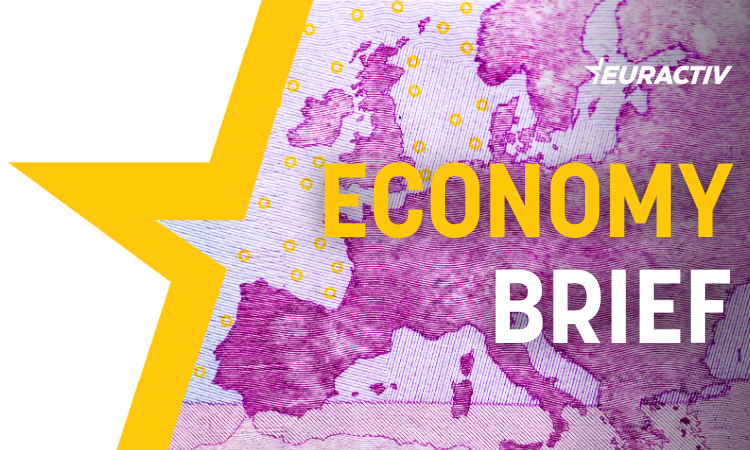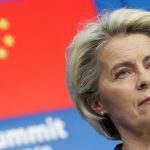
As the EU has presented its shiny new economic security package this week, it will now need to square the circle between security and prosperity.
“Our prosperity has been based on cheap energy coming from Russia [and] access to the big China market,” the EU’s chief diplomat Josep Borrell told a room full of the bloc’s ambassadors in October 2022.
“The fact that Russia and China are no longer the ones that [they] were for our economic development will require a strong restructuring of our economy,” he added.
Borrell’s prophetic remarks came just a few months after Russia’s full-scale invasion of Ukraine, a seismic geopolitical shift that led the bloc to introduce a raft of economic sanctions against Moscow, including import bans on Russian coal and oil.
Though European politicians stress it was ultimately Russia who switched off most of the gas supply by itself.
By this point, the EU had not yet embarked on an official policy of limiting its economic ties with China. This changed five months later, however, when European Commission President Ursula von der Leyen issued her now (in)famous call for Brussels to “de-risk” but not “de-couple” from Beijing.
What exactly such “de-risking” involves was – at least initially – not entirely clear.
More clarity was provided earlier this week, however, when the European Commission officially announced plans to introduce export controls, limit outbound investment, and screen foreign direct investment into the EU from certain “countries of concern” in strategically key sectors (e.g., critical materials and technology).
Over the past two years, the EU has significantly reduced its economic ties with one of the two (Russia). Now it aims to safeguard – although admittedly not to anywhere near the same extent – its economic relations with other third countries (mostly China).
Why is the EU doing this? Because it has, arguably, learned its lesson from its unhealthy dependency on Russian energy and did not treat matters of economy as a security matter.
Last week in Davos, European Central Bank President Christine Lagarde echoed this sentiment, noting that many countries – including those in the EU – have begun to prioritise “security” over “efficiency” in their trade relations, which could cause “costs to be higher in the long term”.
Whether Europe is ultimately able to thrive economically whilst limiting its ties with its former sources of prosperity is an open question.
As Euractiv reported last week, high energy prices have caused Europe’s industrial output to sharply decline over the past year – a fact which has alarmed trade unions and independent experts.
However, analysts’ concerns were partially allayed earlier this week, when Belgium’s Finance Minister Vincent Van Peteghem announced that one of his country’s “key priorities” during its EU Council presidency will be to develop a European Industrial Deal – a proposal which, according to one expert, is “absolutely” required for Europe to halt its industrial slump.
Can Europe ultimately square this circle, and remain both prosperous and secure? Must it choose one or the other?
Or, at a time of increasing geopolitical fragmentation, is the world – and Europe – on course for a future that is ultimately neither?
Chart of the Week
Total trade between the EU and Russia amounted to €257.5 billion in 2021, the year before Russia’s invasion.
By contrast – and as our graph of the week shows – total trade between the EU and China that year was nearly three times greater, at €697.3 billion; in 2022, it rose to €856.3 billion.
Graph: Esther Snippe. You can find all previous editions of the Economy Brief Chart of the week here.
Economic Policy Roundup
The Commission unveils plans to beef up its economic security. The so-called Economic Security Package, the details of which were first reported by Euractiv last week, follows the Commission’s proposal last June for Brussels to be given greater oversight of foreign direct investment into the EU as well as outbound investments by European companies. “It’s a very simple observation that lies behind this strategy: that there is fierce competition worldwide for the technologies that we need the most,” Commission Executive Vice President Margrethe Vestager told a press conference announcing the new plans. “And in this competition, Europe cannot just be the playground for bigger players. We need to be able to play ourselves.” Read more.
Belgian finance minister says development of an Industrial Deal is a “key priority” of EU Council presidency. Vincent Van Peteghem added that “cutting red tape” and improving the bloc’s general investment climate will also be key to arresting the bloc’s industrial decline. He further stressed that previous European industrial policies have “put a lot of focus on the stick and not enough maybe on the carrot, [and] that gave us a disadvantage compared to other continents”. Read more.
Europe’s trade unions issue urgent plea for ECB to cut interest rates. European Trade Union Confederation General Secretary Esther Lynch, whose organisation represents more than 45 million workers across Europe, told Euractiv that the ECB’s tight monetary policy has inflicted “unnecessary” financial pain on European workers and could potentially induce a recession. Her pleas were ultimately ignored: The ECB kept rates at their current record high level on Thursday (25 January). Read more.
EU hopes to overcome US opposition to WTO ‘court’ as key summit nears. Ahead of a key summit of members of the World Trade Organisation (WTO) in Abu Dhabi from 26 to 29 February, the EU hopes to reform the organisation’s dispute settlement mechanism. The second stage of the mechanism, known as the “appellate body”, is currently paralysed as the USA is blocking the appointment of new judges. The WTO’s 13th Ministerial Conference (MC 13) is considered the organisation’s last chance for reform before a potential re-election of former US President Donald Trump. Read more.
Germany’s Habeck wants market power of food industry scrutinised. In order to accommodate farmers, the German government wants to have the market power of supermarkets and the food industry scrutinised. The government blames their price setting power for the poor economic situation of many farms. “We have asked the Monopolies Commission to examine the structures of the market,” Economy Minister Robert Habeck (Greens) said. The Monopolies Commission, an advisory body consisting of economists, entrepreneurs and legal experts, wants to publish a first assessment within a few weeks, its secretary general told Euractiv.
Literature corner
Accelerating strategic investment in the European Union beyond 2026
The dangers lurking in our messy and unpredictable world
Global Economic Uncertainty Remains Elevated, Weighing on Growth
Additional reporting by Jonathan Packroff.
[Edited by Jonathan Packroff / Alexandra Brzozowski / Zoran Radosavljevic]







